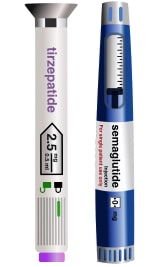Disclaimer: Videoscopic Surgery for GERD is typically reserved for those who do not wish to take medications indefinitely. It shouldn’t be considered until all other measures have been tried. As with all surgeries, there are risks associated with anesthetic, medication, bleeding and infection. As with any surgery, there are risks associated with videoscopic surgical procedures that should be discussed with your doctor. If complications occur during the operation, your doctor may choose to perform open surgery.
Side effects of surgery: Generally, side effects subside 4 weeks postoperatively and may include dysphagia, gas and bloating, belching, vomiting, nausea, and/or diarrhea. Early satiety and increased flatus have been the most common side effects noted. When compared with preoperative symptoms, 97% of the patients surveyed reported overall satisfaction.
Precaution: The proper approach to surgery for gastroesophageal reflux (GERD) requires four careful considerations:
- documentation of reflux as the cause of the patient’s symptoms;
- understanding the underlying cause;
- identification of those patients who should have the procedure, and
- the meticulous performance of the appropriate antireflux procedure.
Attention to these considerations will result in successful antireflux surgery in over 90% of all patients.

